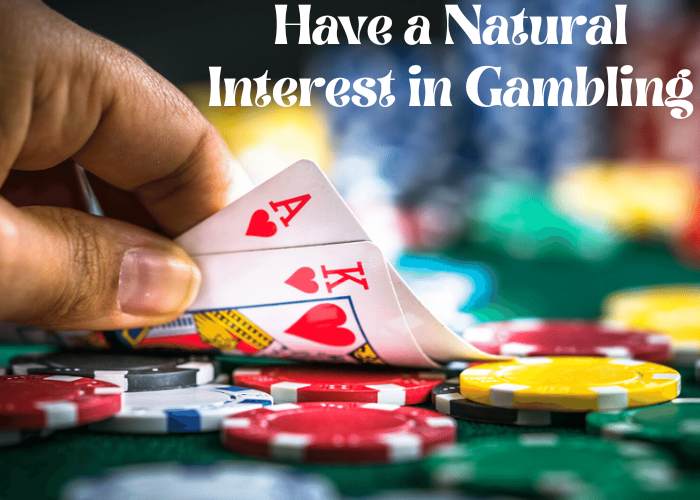Gambling is one of the most popular recreational activities in the world. A natural interest in gambling is expected though it can be enjoyed responsibly by many people; for some, gambling can become an addiction that ruins their life. If you have a genuine interest in gambling and are worried about whether or not you have a problem, look at this guide to see if your habits fit the signs of addiction.
What Is Gambling, and Why Do People Do It?
Gambling is wagering on an event with an uncertain outcome, usually to win money or other prizes. The practice is thought to have originated in China, though it is now famous worldwide. There are many forms of gambling, including casino games, sports betting, lotteries, and more. People gamble for various reasons, including the thrill of the game, the hope of winning money, and the social aspect of it. For some people, gambling can become addicting, leading to financial problems and ruining lives. However, for most people, gambling is simply harmless entertainment.
The Different Types of Gambling
Gambling is an activity that involves wagering of money or something of value on an event with an uncertain outcome with the primary intent of winning additional money or material goods. Gambling thus requires three elements to be present: consideration (an amount wagered), risk (chance), and a prize.
The wager’s outcome is often immediate, such as a single roll of dice, a spin of a roulette wheel, or a horse crossing the finish line. Still, more extended time frames are also standard, allowing wagers on the outcomes of entire sports seasons or multi-year megaevents such as the Olympics or the FIFA World Cup. Supported by law in many jurisdictions and by bookmakers in almost all jurisdictions, gambling has become one of humanity’s most ubiquitous activities, taking many different forms.
Types of gambling include but are not limited to casino gambling, sports betting, racing, and lotteries. I have a genuine interest in gambling. People have been gambling since ancient times, which has been considered a part of human nature. The urge to gamble can sometimes be overwhelming. Still, it is essential to remember that gambling is risky and should only be undertaken if you can afford to lose the money you are wagering. If you think you have a gambling problem, many resources are available to help you understand your options and make the best decision for your situation. Gambling can be addictive and have severe consequences if not managed responsibly. Please gamblers Anonymous for more information about how to get help for gambling addiction.
How to Gamble Responsibly
Gambling can be a fun and exciting way to pass the time, but it’s important to gamble responsibly. You can do a few things to ensure you stay in control of your gambling. First, only gamble with money you can afford to lose. Gambling should never be a way to make money – it should only be done for entertainment purposes. Second, limit how much money you’re willing to lose and stick to those limits. Once you’ve reached your loss limit, stop gambling for the day. Finally, take breaks from gambling. It’s essential to have other hobbies and interests outside of gambling. If gambling takes up too much of your time, it may be time to take a break. Gambling responsibly is all about knowing your limits and sticking to them. You can make gambling a fun pastime instead of a problem with self-control.
The Thrill of Gambling and the “High” It Produces
Gambling has been around for centuries and has been a popular pastime for people of all cultures and walks of life. For some, gambling is a casual pastime; for others, it is a more serious pursuit. Regardless of why people gamble, there is no doubt that it can be addictive and lead to financial ruin. However, gambling can also be immensely thrilling and produce a “high” similar to the feeling of winning. This feeling is caused by dopamine release in the brain, which gives gamblers a sense of pleasure and satisfaction. For many, this feeling is hard to resist and can lead to gambling becoming a problem. If you or someone you know has a gambling problem, it is essential to seek help from a professional. Gambling can have severe consequences if it is not kept under control.
Gambling Addiction and How to Deal With It
Gambling addiction is a severe problem that can have devastating consequences. While anyone can develop a gambling problem, some people are more vulnerable than others. People with a genuine interest in gambling or who have experienced previous success with gambling are more likely to develop an addiction. Gambling addiction can lead to financial ruin, relationship problems, and mental health issues. If you think you or someone you know may have a problem with gambling, there are a few things you can do to get help. Talk to your doctor or a mental health professional about your concerns. You can also join a support group or seek out counseling. The most important thing is to get help before the problem gets out of control. With treatment, it is possible to overcome a gambling addiction and live a happy and healthy life.
Conclusion
As humans, we are naturally drawn to gambling. Gambling has been around for centuries and is a popular pastime worldwide. People love to gamble, whether playing slot machines in Las Vegas or betting on horses at the track. This post will explore why gambling is so appealing and examine how online casinos take advantage of our natural tendencies.
